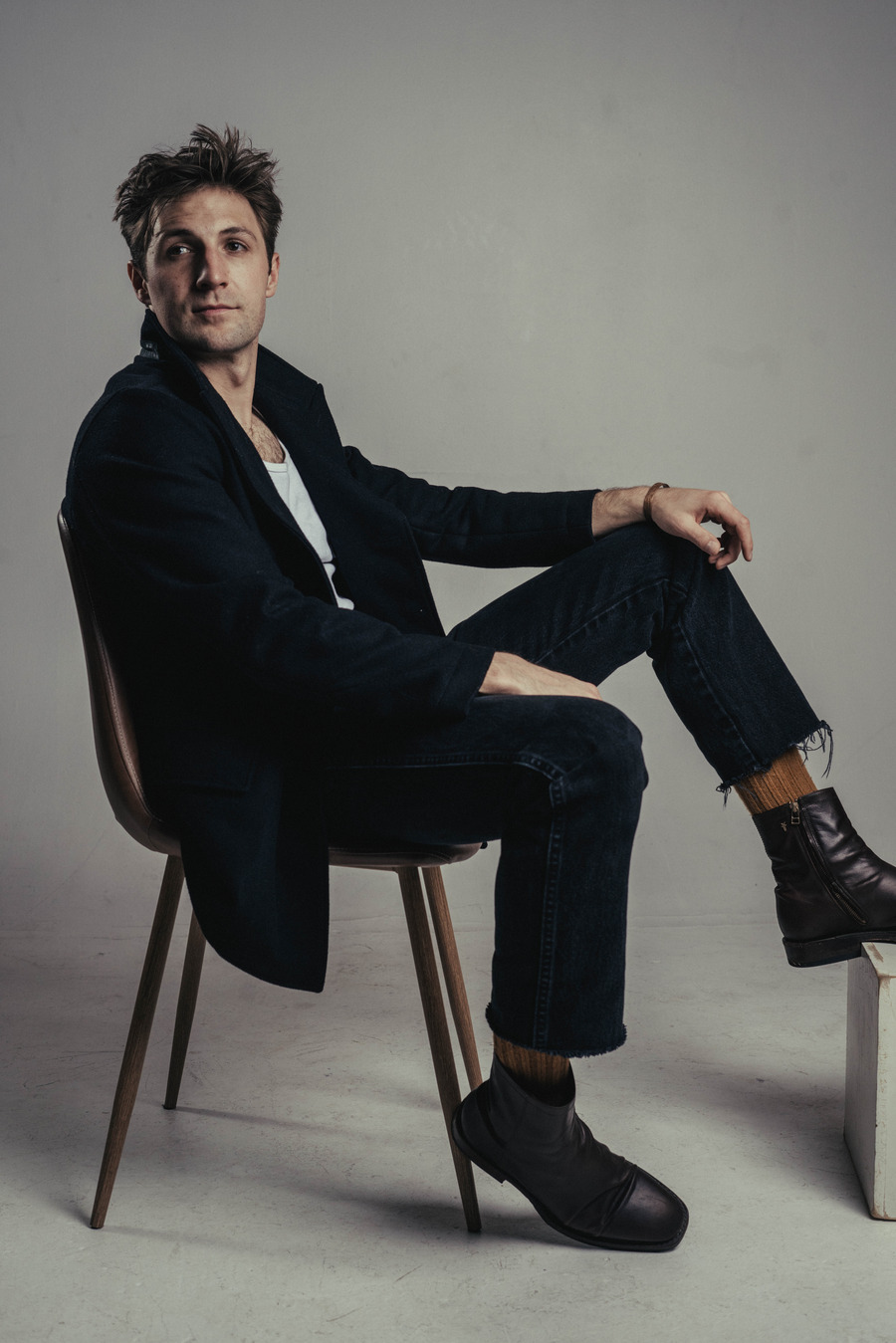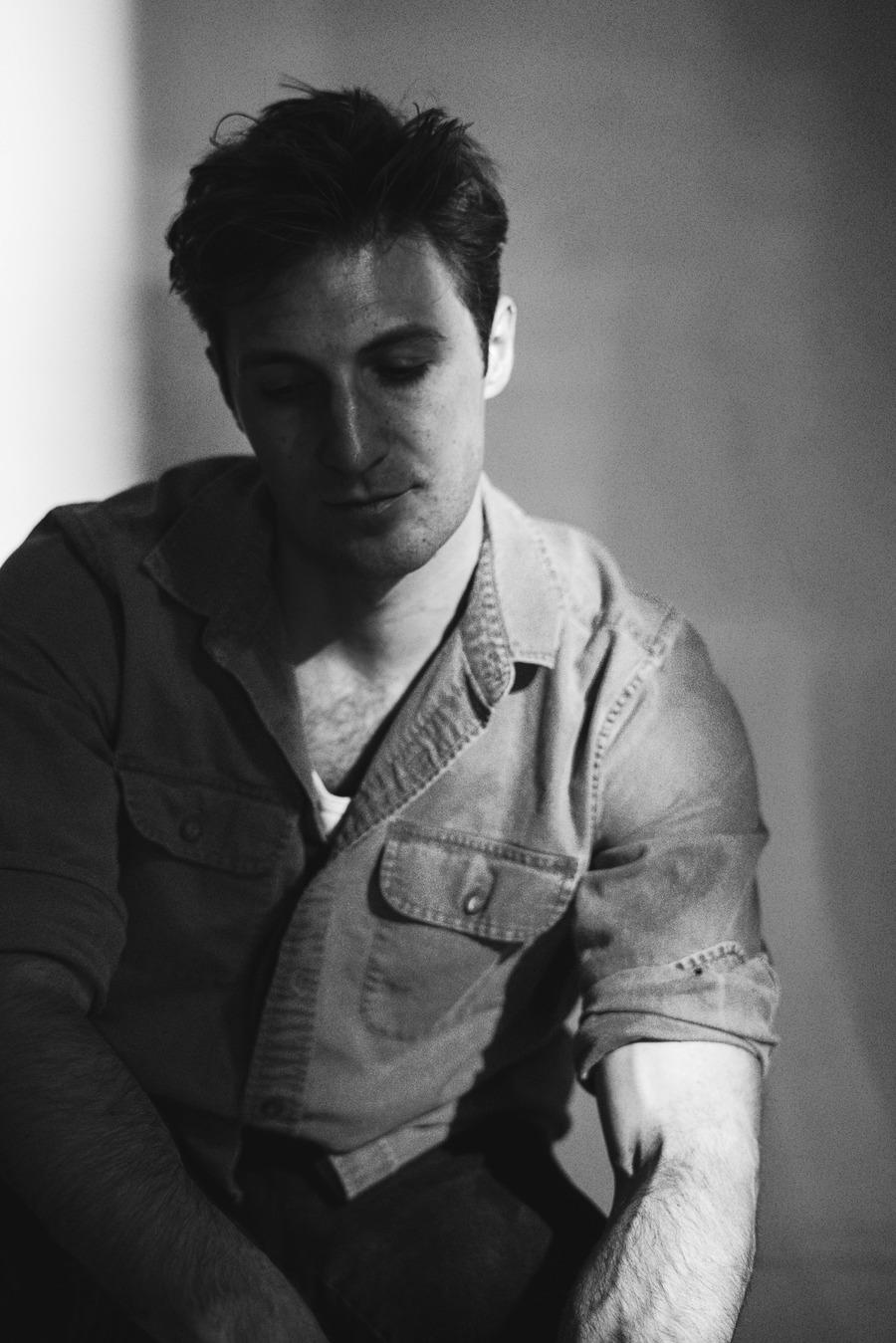
M. Dunton‘s musical talent radiates brightly in his latest release “Hotel Lobby,” which is also the inaugural piece from his eponymous first album. The song is accompanied by a refined and vulnerable musical arrangement that promptly captivates the audience while letting people identify feelings such as sadness, resignation, melancholy and an internal moral debate as the driving emotional engine of the song.
www.instagram.com/mike_dunton / linktr.ee/mduntonmusic
To start, we would like to know about your beginnings in music to have a good context of your musical steps. How did this all start for you?
I grew up in Coeur d’Alene, Idaho, and spent the majority of my childhood discovering my relationship with music through the guitar. There wasn’t much of a music scene that I knew of, so I stayed pretty isolated, absorbing every bit of music history I could via Long Ear Record Store runs and early internet music videos. I was content enough in the basement with my guitar, keyboard, and Tascam 8-track just kind of figuring it out. I was also a pretty serious long-distance runner, which was the perfect activity for a kid learning how to work through creative ideas. Creativity and running still go hand in hand for me.
It wasn’t until college that I really started writing songs and playing them out. I was green but obsessed enough to move to Nashville and immerse myself in what was going on down there. I moved primarily to be a guitarist, and have met some of my favorite humans and artists through guitar gigs. I think it’s important to let our goals shift as we develop. I love playing guitar for great artists and still do, but recording and performing my songs is the most fulfilling part of my journey.
How would you assess your experience in the artistic industry so far?
I’ve been incredibly fortunate to be surrounded by so many inspiring, supportive people whom I love and respect. I think that’s all you can ask for when you’re discovering yourself as an artist. There’s so much noise in Nashville, but I don’t really hear it. The most inspiring stuff is coming from DIY events and independent scenes.
I’d love to get to the point where I’m building a bigger team and reaching more people, but right now I’m really just trying to enjoy where I’m at. So far, I can scope the crowd at my shows and genuinely feel like I could have a beer with most of the people there. That’s what I’m looking for. I want to build it as organically as possible.
In this opportunity, you’re releasing ‘Hotel Lobby’, a divine song in lyrics and music. What is the story behind this song? What was the inspiration behind it?
In short, the song touches on the relationship between carnal temptation and human resolve. The narrator finds themselves in a situation in which they’ve developed a lustful relationship with their partner’s friend — realizing the only solution is to create space and let time do its thing.
The song isn’t autobiographical but it was very cathartic to write. Songwriting gives me an outlet to explore alternative worlds and live vicariously through them. It helps me gain perspective on things. An exercise in empathy, I suppose.

Can you walk us through your creative process in terms of crafting both the music and lyrics for this single?
I wrote ‘Hotel Lobby’ on the piano, which is rare for me. I built a complete instrumental demo at home, then freestyled a vocal take which ended up containing a couple of lines that I really dug. I wrote the majority of it in about 20 minutes, then spent months editing and refining it. I even got back in the booth to change a line just before we sent the album to mastering. Some songs are like that.
I heard that a child’s toy piano was used to record the piano for this song and that you guys had a lot of fun doing it. Can you tell us about this anecdote?
Aaron Shafer-Haiss (producer) and I spent the day working on the song. I had the riff written but we were struggling to find the most effective way to deliver it in the track. We wrapped the session and bookmarked that part for later. That night, Aaron said he walked into his house and heard his toddler pecking at her toy piano. The next day he brought that toy piano into the studio and mic’d it up. It was the perfect character.
Aaron Shafer-Haiss and you did the entire recording of the ‘Hotel Lobby’, and from your upcoming and self-titled album. How was the experience?
Working with Aaron was an absolute dream for me. He’s a lights-out producer and percussionist, so together we were able to cover all the bases (sans pedal steel, which we brought Philippe Bronchtein in for). Aaron acted as both producer and mentor, which is exactly what I needed to maintain perspective on this project.
His drumming on ‘Hotel Lobby’ is iconic. It’s the first track in my catalog that has bonafide air drumming parts. We definitely drew inspiration from Wilco’s “I’m Trying To Break Your Heart,” but those parts Aaron created are uniquely his and I’m so grateful to have them on the record.
What do you hope listeners will take away from “Hotel Lobby”?
There are infinite ways a song can resonate with the listener, and I couldn’t begin to define what they should be. To be completely honest, I would love to see people playing that piano riff on social media. That would be great.
I heard Cora Cora, and in both songs -Cora Cora and ‘Hotel Lobby’- no matter how different they are, you can easily identify a timeless style. It is not something that you feel corresponds to a certain period, but a piece that can always be heard and will have the same validity. Is it something you do intentionally? How to escape stereotyped music?
I think “timeless” music is a result of trusting the muse when you’re creating and letting all your influences manifest organically into something original. It seems like artists get caught up in trying to sound timeless and end up sounding like a lost record from the 70s. I love drawing inspiration from different eras, but I’m not interested in using nostalgia to trick people into listening to me.
On the other side of the spectrum, I have the utmost respect for artists who write about current events with such specificity that it cements the song in a period of time. When done successfully, I think that’s a greater accomplishment than writing a “timeless” song. I’m still working on it.
Who inspired you then and now?
Now: I’ve been spinning Paul Simon, Youth Lagoon, Blondshell, Indianola, and The 1975 on repeat.
Then: My dad got me into all the classic rock stuff, but my mom was the one who got me into The Beatles. All the modern music fell to the wayside when I went down that rabbit hole. It actually wasn’t until I rediscovered Gorillaz in high school that I felt truly inspired by a current artist. They opened me up to so much. I’m still a massive Damon Albarn fan. Other than that, the contemporary artists I was emulating were Modest Mouse, Andrew Bird, Dawes, Rocky Votolato, Jack White — too many to list.

If we take a look at your playlist right now, what will we find out?
That I have great taste.
Mike, what is music for you?
My relationship with music is always changing. As I’ve grown as an artist, it’s become less romantic but much more profound. It’s the medium with which I explore myself and test the limits of my ability. It’s also expanded my human experience far beyond my expectations. Whether I’m playing a theatre in Norway, a rooftop in Brooklyn, or a barbecue in Nebraska — music forces me to integrate with society on a very human level within a culture that makes isolation and automation a comfortable default.

